#display-advertising-retargeting
Explore tagged Tumblr posts
Text
Best Digital Marketing Company in India
Digital Marketing Company
Why Choose Us for your Business
As an interactive digital marketing company in India, we take a user-centric approach. We prepare, shape, and build your brand with our digital marketing strategies. We follow a proven digital marketing methodology to ensure a sustainable marketing funnel for your business.
Best Digital Marketing Company in India #india #digitalmarketing #digitalmarketingcompany #digitalmarketingagency https://pickmyurl.tumblr.com/Digital-marketing-company-in-India
youtube
#web-design-and-development#digital-marketing-strategy#search-engine-optimisation#social-media-management-and-monitoring#pay-per-click-google-adwords#display-advertising-retargeting#branding#website-hosting-domains#graphic-design#copywriting#website-designing#digital-marketing#smm-marketing#seo-optimization#ecommerce-website-designing#Youtube
0 notes
Text
Elevating Your Digital Marketing with Expert PPC Campaign Management Services
In the ever-evolving landscape of digital marketing, the power of Pay-Per-Click (PPC) advertising shines brightly as a beacon for businesses aiming to enhance their online visibility and drive more targeted traffic to their websites. This form of advertising, where businesses pay a fee each time one of their ads is clicked, presents a golden opportunity to appear in front of potential customers precisely when they're searching for related services or products. However, the true essence of a successful PPC campaign lies not just in its execution but in its strategic management. This is where PPC campaign management services step in, bridging the gap between potential and success.
The Importance of PPC in Digital Marketing
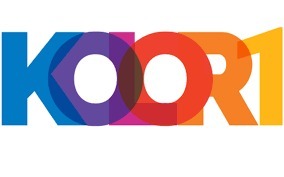
PPC advertising is more than just an advertising channel; it's a strategic tool that offers immediacy and precision in reaching target audiences. Unlike traditional SEO strategies that take time to yield results, PPC campaigns can generate immediate traffic and offer quick insights into market behavior. However, navigating the complexities of PPC campaigns requires a blend of strategic insight, analytical skills, and ongoing optimization, underscoring the significance of PPC campaign management services. These services ensure that every dollar you spend is an investment toward achieving your business objectives, making efficiency and effectiveness the hallmarks of your digital marketing efforts.
Choosing the Right PPC Campaign Management Service
The marketplace is teeming with agencies and firms offering PPC campaign management services, but choosing the right partner is pivotal. A proficient service provider understands the nuances of different PPC platforms, whether Google Ads, Bing Ads, or social media advertising platforms like Facebook and LinkedIn. They bring to the table a deep understanding of keyword research, ad copywriting, bid management, and conversion optimization, ensuring your campaigns are not just seen but also resonate with your target audience. The right service will work as an extension of your marketing team, fully aligned with your business's goals and values.
Key Components of Effective PPC Campaign Management
Effective PPC campaign management services delve into the heart of your business objectives, tailoring campaigns that speak directly to your target audience. They start with comprehensive keyword research, identifying the terms and phrases your customers are using to search for your products or services. This step is critical in ensuring your ads appear for the right searches.
Ad copy optimization is another crucial component, where the focus is on creating compelling ad texts that attract clicks. This involves A/B testing different headlines, descriptions, and calls to action to determine what works best.
Bid management is about finding the sweet spot where you're paying enough to get your ads seen but not overpaying for clicks. Expert PPC campaign management services use sophisticated algorithms and historical data to adjust bids in real time, maximizing your return on investment.
Lastly, conversion tracking and analytics are what turn data into insights. By understanding which ads, keywords, and landing pages are driving conversions, PPC managers can continually refine and optimize campaigns for better performance.
The Benefits of Leveraging PPC Campaign Management Services
The complexities of PPC management can be daunting, especially for businesses with limited digital marketing resources. By partnering with a specialized service, you gain access to expertise and technologies that can transform your PPC campaigns from an expense into a strategic investment. These services can significantly reduce wasted spend by targeting only the most relevant audiences and optimizing your campaigns for conversions, not just clicks.
Moreover, PPC campaign management services stay abreast of the latest trends, platform updates, and best practices, ensuring your campaigns leverage cutting-edge strategies. This proactive approach to campaign management can be the difference between staying ahead of the competition and playing catch-up.
Success Stories: PPC Campaign Transformations
Real-world success stories underscore the transformative power of expert PPC campaign management services. Businesses across various industries, from e-commerce to B2B services, have seen significant improvements in their campaign performance, achieving higher conversion rates, lower cost per acquisition, and improved ROI. These success stories not only serve as testimonials to the efficacy of professional PPC management but also offer insights and inspiration for businesses still on the fence about investing in these services.
How to Get Started with a PPC Management Service
Embarking on the journey with a PPC campaign management service begins with a comprehensive audit of your current digital marketing efforts and identifying your specific goals. This initial assessment helps tailor a strategy that aligns with your business objectives. From there, setting up and launching your campaigns is handled by experts, allowing you to focus on your business while your digital marketing works harder for you.
Conclusion
In the digital age, where visibility and engagement are the currencies of success, PPC campaign management services offer a strategic advantage. They enable businesses to navigate the complexities of PPC advertising, ensuring that every campaign is not just a shot in the dark but a calculated step towards achieving marketing objectives.
#pay-per-click advertising#digital marketing strategies#online advertising management#Google Ads management#search engine marketing#ad campaign optimization#PPC bid management#keyword research for PPC#conversion rate optimization#social media advertising#display advertising strategies#retargeting campaigns#PPC analytics and reporting#ad copywriting and testing#landing page optimization for PPC#mobile advertising strategies#PPC account audit#programmatic advertising#PPC for ecommerce#budget management for PPC
0 notes
Text
Unleashing the Power of Facebook Marketing: Best Strategies for Success
In the ever-evolving landscape of digital marketing, Facebook continues to reign supreme as a powerhouse platform for businesses looking to connect with their target audience, build brand awareness, and drive sales.

Crafting an effective Facebook marketing strategy is essential for staying ahead in the competitive online market. Here, we explore the best strategies to make the most of your Facebook marketing efforts.
Create a Compelling Business Page: Facebook Business Page is the foundation of your online presence. Optimize it by providing complete and accurate information, using high-quality visuals, and incorporating your brand's unique personality.

Regularly update your profile and cover photos to keep your page fresh.
Content is King: Develop a content strategy that resonates with your audience. Use a mix of engaging text, eye-catching visuals, and videos. Experiment with different content types to see what works best for your target demographic. Consistency is key, so establish a posting schedule and stick to it.
Leverage Facebook Ads: Facebook's robust advertising platform allows you to reach highly targeted audiences. Utilize Facebook Ads to promote your products or services, boost posts, and drive website traffic.

Experiment with different ad formats, such as carousel ads, video ads, and slideshow ads, to see what generates the best results.
Harness the Power of Video: Video content has become increasingly popular on Facebook. Utilize live videos, tutorials, behind-the-scenes glimpses, and storytelling to engage your audience. Facebook's algorithm often favors video content, leading to higher reach and engagement.
Engage with Your Audience: Actively respond to comments, messages, and reviews on your page. Encourage discussions, ask questions, and run polls to foster a sense of community.

By engaging with your audience, you build trust and loyalty, which can translate into customer retention and advocacy.
Run Contests and Giveaways: Create excitement and boost engagement by running contests and giveaways. Encourage users to like, share, and comment for a chance to win. This not only increases your reach but also creates a buzz around your brand.
Utilize Facebook Analytics: Regularly analyze Facebook Insights to understand the performance of your content and ads. Identify trends, track key metrics, and adjust your strategy accordingly.

This data-driven approach ensures that you're making informed decisions to optimize your Facebook marketing efforts.
Implement Retargeting Strategies: Make use of Facebook Pixel to track website visitors and retarget them with relevant ads. This helps re-engage potential customers who have shown interest in your products or services, increasing the likelihood of conversion.
Collaborate with Influencers: Partnering with influencers can significantly expand your reach.
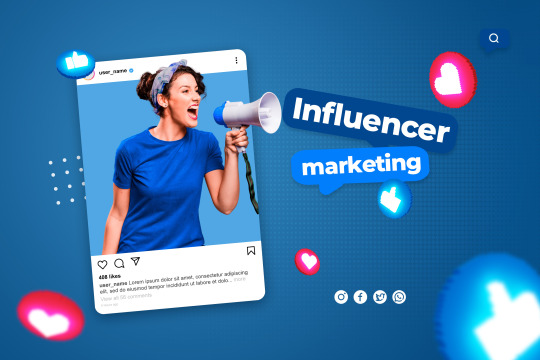
Identify influencers whose audience aligns with your target demographic and collaborate on sponsored content or promotions.
Stay Updated on Algorithm Changes: Facebook's algorithm evolves, impacting how content is displayed in users' feeds. Stay informed about algorithm changes and adjust your strategy accordingly. Currently, meaningful interactions and quality content are prioritized, so focus on creating content that sparks genuine engagement.
Conclusion:
Mastering Facebook marketing requires a combination of creativity, consistency, and adaptability. By implementing these strategies, you can unlock the full potential of Facebook as a marketing powerhouse, driving brand growth and achieving your business objectives. Keep refining your approach based on data and feedback, and watch as your brand flourishes in the dynamic world of social media marketing.
#facebook marketing#digital marketing#influencers#seo#linkedin#facebook ads#social media marketing#search engine optimization#online marketing#learn digital marketing#seo expert#marketing agency#facebook advertising#facebook ad manager#facebook ad agency services#facebook ad boost#social media#socialmedia#facebook
20 notes
·
View notes
Text
PPC for E-commerce | Anadee Digital Solutions
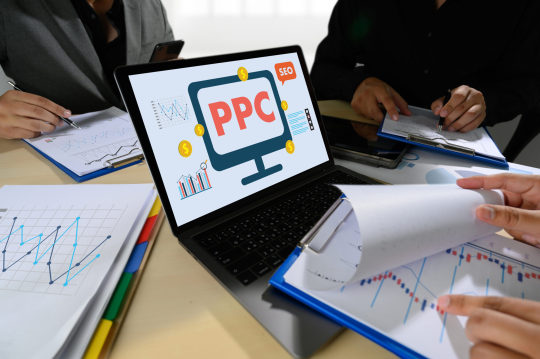
PPC for E-commerce: A Complete Guide to Boosting Sales and Driving Growth
As the e-commerce industry expands, competition for consumer attention has become fiercer than ever. To effectively stand out and drive traffic to your online store, Pay-Per-Click (PPC) advertising has become an essential tool. By targeting potential customers at every stage of their buying journey, PPC campaigns can significantly increase both visibility and sales. In this guide, we’ll break down how to implement PPC for e-commerce, along with actionable tips to maximize your returns.
Understanding PPC for E-commerce
PPC advertising involves paying a fee each time someone clicks on one of your ads. These ads are placed on search engines, social media platforms, and other sites where users may be interested in your products. For e-commerce businesses, PPC campaigns can bring targeted traffic directly to product pages, boosting the likelihood of conversions.
PPC ads can be tailored to reach specific demographics, locations, or interests, giving businesses greater control over who sees their ads and when. PPC also includes multiple formats such as Google Search Ads, Display Ads, Shopping Ads, and Social Media Ads, which makes it adaptable to various campaign objectives, from product awareness to driving sales.
Benefits of PPC for E-commerce Businesses
Quick Results: PPC campaigns can generate immediate traffic and results.
High ROI Potential: With strategic targeting and budget control, PPC can deliver high returns by focusing on audiences likely to convert.
Scalability: You can start small and increase your budget as you see success.
Measurable Performance: PPC provides real-time analytics that allows you to track impressions, clicks, and conversions to optimize your campaigns.
Reaching Your Target Market: With specific targeting options, you can focus on consumers who are actively searching for your products or services.
Best PPC Strategies for E-commerce
1. Google Shopping Ads
Google Shopping Ads are essential for e-commerce. They display product images, prices, and descriptions directly on the search engine results page (SERP), making them more engaging and relevant to online shoppers. To make the most of Shopping Ads, ensure your product data feed is optimized. Use clear, high-quality images and relevant product titles and descriptions. Google uses this information to match search queries with your products, so precise descriptions help you reach a highly interested audience.
2. Remarketing Campaigns
Remarketing helps you target visitors who have previously shown interest in your products but didn’t complete a purchase. By creating tailored ads that remind them of items they viewed or abandoned in their cart, you increase the likelihood of conversions. Dynamic remarketing campaigns allow you to show personalized ads that feature specific products from your catalogue, keeping your brand and items top-of-mind for potential buyers.
3. Utilizing Social Media Ads
Social media platforms, such as Facebook and Instagram, allow for highly detailed audience targeting. Social media ads are excellent for brand awareness, generating leads, and even retargeting website visitors. For e-commerce, carousel ads are particularly effective because they enable users to scroll through multiple products within a single ad, increasing interaction rates.
4. Keyword and Competitor Analysis
Before launching a PPC campaign, conduct thorough keyword research to determine which search terms are likely to drive relevant traffic to your site. Using tools like Google Keyword Planner can help you find high-intent keywords related to your products. Additionally, performing competitor analysis allows you to identify gaps in your strategy, adjust bids on competitive keywords, and keep a competitive edge in the SERPs.
5. A/B Testing and Optimization
Constantly test and optimize your ad copy, visuals, and calls-to-action (CTAs). A/B testing enables you to find the most effective ads and maximize performance. For instance, experiment with different headlines, descriptions, and images in Google Shopping Ads. Similarly, monitor your campaign’s performance data to adjust bids, targeting, and budgets based on what’s working.
Measuring Success in PPC
Key metrics to monitor include:
Click-Through Rate (CTR): Indicates the relevancy of your ads to the audience.
Conversion Rate: Measures how many clicks turn into sales.
Cost Per Click (CPC): Tracks spending efficiency.
Return on Ad Spend (ROAS): Measures the revenue generated from your ad spend.
By analyzing these metrics, you can continually refine your PPC strategy to improve ROI and achieve better results.
PPC for e-commerce is a powerful way to drive targeted traffic, increase visibility, and boost sales. Anadee Digital offers the best-customized campaigns for your E-commerce business. By understanding your audience, using effective ad formats, and refining campaigns based on performance data, Anadee can create PPC campaigns that support your growth and revenue goals. With a well-executed PPC strategy, your e-commerce store can not only compete in today’s market but thrive. Contact us today to get a free audit of your e-commerce website and know more about the bottlenecks in your sales campaigns.
2 notes
·
View notes
Text
What Is Paid Media Marketing? An Introduction for Beginners
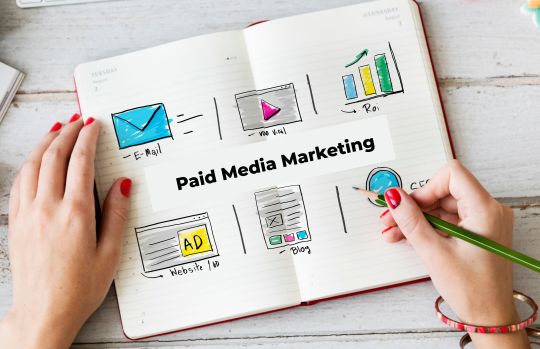
In the fast-paced digital landscape, businesses are constantly seeking effective strategies to enhance their online presence and reach their target audience. Paid media marketing has emerged as a powerful tool to achieve these goals. This comprehensive introduction to paid media marketing will help beginners understand its fundamental concepts, benefits, and how to implement it effectively within their digital marketing strategy.
Understanding Paid Media Marketing
Paid media marketing refers to any form of digital advertising where businesses pay to have their content displayed on various platforms. This can include pay-per-click (PPC) advertising, social media ads, display ads, and more. Unlike organic marketing efforts, paid media provides immediate visibility and reach, allowing businesses to target specific audiences with precision.
Key Components of Paid Media Marketing
1. Pay-Per-Click (PPC) Advertising
Among paid media, PPC advertising is one of the most often used types. Advertisers pay a charge under this arrangement for each click on their advertisement. It is primarily used on search engines like Google and Bing. PPC ads appear at the top of search engine results pages (SERPs), providing instant visibility.
Benefits of PPC:
Immediate Results: Unlike SEO, which takes time to build, PPC can drive traffic to your website instantly.
Targeted Advertising:PC enables accurate targeting according to geography, demographics, keywords, and other factors.
Cost Control: Advertisers can set budgets and only pay for actual clicks, making it cost-effective.
2. Social Media Advertising
Social media ads are another critical component of paid media marketing. Platforms like Facebook, Instagram, LinkedIn, and Twitter offer robust advertising options, allowing businesses to target users based on their interests, behaviors, and demographics.
Benefits of Social Media Ads:
Extensive Reach: Social media platforms have billions of active users, offering a vast audience for your ads.
Engagement: Social media ads can be interactive, encouraging users to engage through likes, shares, comments, and clicks.
Advanced Targeting: Detailed targeting options enable advertisers to reach specific segments of their audience effectively.
3. Display Advertising
Display ads are visual advertisements that appear on websites within the Google Display Network and other ad networks. They can be in the form of banners, images, or videos and are designed to attract attention and drive traffic to the advertiser's site.
Benefits of Display Ads:
Visual Appeal: Display ads can be highly creative and visually engaging, capturing users' attention effectively.
Retargeting Opportunities: Display ads can be used for retargeting campaigns, reaching users who have previously visited your website.
Brand Awareness: They are excellent for building brand awareness and keeping your brand top-of-mind among potential customers.
Implementing Paid Media Marketing
To effectively implement paid media marketing, it’s essential to understand the key steps involved:
1. Define Your Goals
Start by defining clear objectives for your paid media campaigns. Whether you aim to increase website traffic, generate leads, or boost sales, having specific goals will guide your strategy and help measure success.
2. Choose the Right Platforms
Select the platforms that align best with your target audience and business goals. For example, if you’re targeting professionals, LinkedIn might be more effective, whereas Instagram could be better for reaching younger demographics.
3. Conduct Keyword Research
For PPC campaigns, thorough keyword research is crucial. Identify the keywords your target audience is searching for and bid on those that are most relevant to your products or services.
4. Create Compelling Ad Content
Create compelling and pertinent advertising content that appeals to your target market. High-quality visuals, compelling copy, and a clear call to action (CTA) are essential components of successful ads.
5. Set Budgets and Bids
Determine your advertising budget and set appropriate bids for your ads. Consider the cost-per-click (CPC) or cost-per-impression (CPM) and ensure you’re getting the most value for your investment.
6. Monitor and Optimize
Keep a close eye on your sponsored media initiatives' results. Use analytics tools to track key metrics such as click-through rates (CTR), conversion rates, and return on investment (ROI). Based on these insights, optimize your campaigns for better performance.
Benefits of Paid Media Marketing
1. Enhanced Visibility
Paid media provides immediate visibility for your brand, placing your ads in front of a broad audience. This is especially beneficial for new businesses looking to establish an online presence quickly.
2. Targeted Reach
Paid media allows for precise targeting, ensuring your ads are seen by the right people. Better conversion rates and increased engagement rates follow from this.
3. Measurable Results
With paid media, you can track and measure the performance of your campaigns in real-time. This data-driven approach enables you to make informed decisions and continuously improve your strategy.
4. Cost-Effective
Paid media can be highly cost-effective, especially with models like PPC, where you only pay for actual clicks. With careful budget management, you can achieve significant results without overspending.
Conclusion
Paid media marketing is a powerful tool that can significantly enhance your digital marketing efforts. By understanding its components, implementing it strategically, and continuously optimizing your campaigns, you can achieve your business goals effectively. Partnering with a reputable PPC company and Digital Marketing services provider like Flexsin can help you navigate the complexities of paid media and maximize your return on investment. Embrace the power of paid media marketing and watch your business thrive in the digital landscape.
2 notes
·
View notes
Text
How Meta Ads Help in Marketing Your Business
As a expert in Imagency media i will give complete guidlines on this...
In today's digital landscape, businesses must leverage effective advertising strategies to reach their target audiences. Meta Ads, formerly known as Facebook Ads, have become a powerful tool for marketers, offering various features and benefits that can enhance business visibility and drive results. In this article, we’ll explore how Meta Ads can significantly improve your marketing efforts.
1. Extensive Audience Reach
Meta platforms, including Facebook and Instagram, boast billions of active users worldwide. This vast user base provides businesses with an unparalleled opportunity to reach potential customers across different demographics and geographic locations. By utilizing Meta Ads, businesses can connect with a diverse audience and increase their brand visibility.
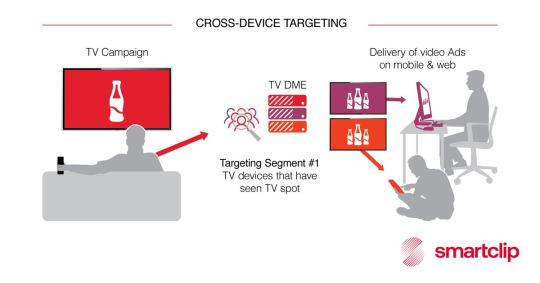
2. Advanced Targeting Capabilities
One of the standout features of Meta Ads is their sophisticated targeting options. Advertisers can reach specific audiences based on various criteria, including:
Demographics: Age, gender, location, and language.
Interests: Hobbies, preferences, and behaviors.
Custom Audiences: Targeting users who have previously interacted with your business, such as website visitors or past customers.
Lookalike Audiences: Finding new customers similar to your existing audience.
This level of precision ensures that your ads are seen by the most relevant users, increasing the likelihood of engagement and conversions.
3. Diverse Ad Formats
Meta Ads support a wide range of ad formats, allowing businesses to choose the best options for their campaigns. Some popular formats include:
Image Ads: Simple yet effective, ideal for showcasing products.
Video Ads: Engaging content that captures attention and tells a story.
Carousel Ads: Multiple images or videos that users can swipe through, perfect for showcasing a collection.
Stories Ads: Full-screen vertical ads that appear between user stories, providing a seamless viewing experience.
This variety enables businesses to create compelling ads that re
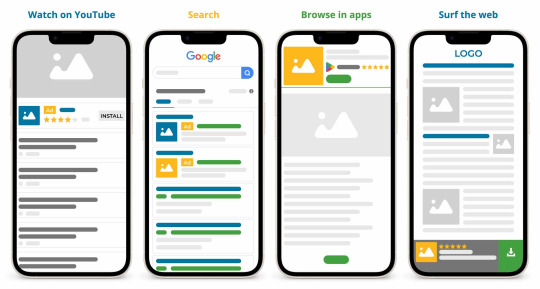
sonate with their target audience.
4. Cost-Effective Marketing
Meta Ads operate on a bidding system, allowing businesses to set their budgets and control their advertising costs. This flexibility makes it possible for companies of all sizes to run effective campaigns. Advertisers can choose between cost-per-click (CPC) and cost-per-impression (CPM) models, ensuring that they can maximize their return on investment.
5. Enhanced Brand Awareness
Meta Ads are an excellent tool for building brand awareness. By consistently displaying ads to your target audience, you can increase visibility and recognition of your brand. Engaging ad formats, such as videos and interactive content, can further enhance user engagement, fostering a stronger connection between the audience and your brand.
6. Retargeting Capabilities
Retargeting is a powerful strategy that allows businesses to reconnect with users who have previously interacted with their brand. With Meta Ads, you can create custom audiences to retarget users who visited your website, added products to their cart, or engaged with your content. This approach helps nurture leads and increases the chances of conversion by reminding potential customers of their interest in your products or services.
7. Comprehensive Analytics and Insights
Meta Ads provide robust analytics tools that allow businesses to track the performance of their campaigns. Advertisers can access detailed metrics, such as reach, engagement, clicks, and conversion rates. This data is invaluable for understanding the effectiveness of your ads and making data-driven decisions to optimize future campaigns.
8. Seamless Integration with E-commerce
For e-commerce businesses, Meta Ads offer features like product catalogs and shopping ads, making it easy to showcase products directly on the platform. These features allow customers to browse and shop without leaving the app, creating a seamless shopping experience and driving sales.
Conclusion
Incorporating Meta Ads into your marketing strategy can significantly enhance your business’s online presence and drive meaningful results. With extensive reach, advanced targeting options, diverse ad formats, and powerful analytics, Meta Ads offer a comprehensive solution for businesses looking to grow and engage with their audience. By leveraging these tools effectively, you can maximize your marketing efforts and achieve your business goals.
Contact today for meta ads services
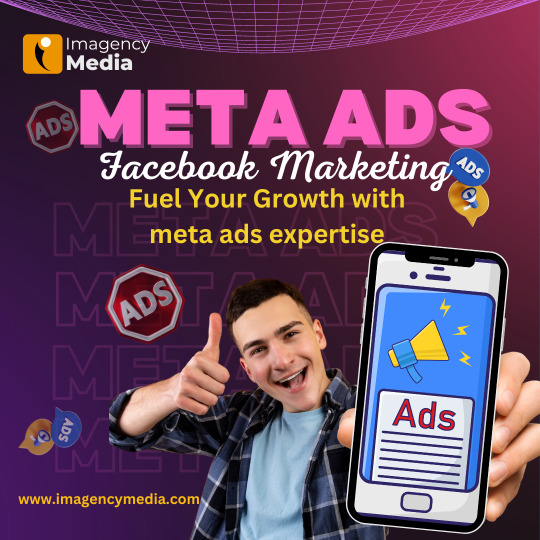
3 notes
·
View notes
Text
SEM Techniques: Driving Traffic and Conversions Through Paid Search

Introduction
In the ever-evolving digital landscape, Search Engine Marketing (SEM) has emerged as a powerful tool for businesses aiming to increase their online visibility and drive conversions. SEM involves using paid advertising on search engines to reach potential customers precisely when they are searching for products or services. This blog explores the intricacies of SEM, its significance in the modern business world, and how it can help drive traffic and conversions. We will also highlight the expertise of the best certified freelancer for growing your business online, Digital Dhruv Ravaria.
1. What is SEM?
Definition of Search Engine Marketing (SEM)
SEM, or Search Engine Marketing, is a form of internet marketing that involves the promotion of websites by increasing their visibility in search engine results pages (SERPs) primarily through paid advertising. Unlike SEO (Search Engine Optimization), which focuses on organic traffic, SEM uses paid strategies to achieve instant visibility.
Components of SEM
Paid Search Ads: These are text ads that appear at the top or bottom of the SERPs. They are triggered by specific keywords that users enter into the search engine.
Display Ads: These are visual ads that appear on websites within the Google Display Network. They can include images, videos, and interactive elements.
Shopping Ads: These ads appear when users search for products on Google. They show product images, prices, and store information.
Remarketing/Retargeting Ads: These ads target users who have previously visited your website or interacted with your brand, encouraging them to return and complete a purchase.
How SEM Differs from SEO
While both SEM and SEO aim to increase a website’s visibility on search engines, they do so in different ways. SEO focuses on optimizing website content and structure to improve organic rankings over time, whereas SEM uses paid advertising to achieve immediate visibility. Together, they form a comprehensive search strategy that can maximize both short-term and long-term online presence.
2. Why is SEM Useful in Today's Modern World for Growing Your Business?
Enhancing Online Visibility and Brand Awareness
One of the primary benefits of SEM is its ability to enhance online visibility quickly. By bidding on relevant keywords, businesses can ensure their ads appear at the top of search results, making it easier for potential customers to find them. This increased visibility not only drives traffic to the website but also enhances brand awareness. Users repeatedly seeing a brand in search results become more familiar with it, which can influence their purchasing decisions.
Targeting Specific Audiences with Precision
SEM allows businesses to target specific audiences with precision. Advertisers can choose who sees their ads based on factors such as location, language, device, and user behavior. This level of targeting ensures that the ads reach the most relevant audience, increasing the chances of conversions. For instance, a local business can target users within a specific geographic area, ensuring that only potential local customers see their ads.
Driving Immediate Traffic to Your Website
One of the most significant advantages of SEM is the ability to drive immediate traffic to your website. Unlike SEO, which can take months to show results, SEM can generate traffic as soon as the campaigns go live. This immediate influx of visitors can lead to quicker conversions, making SEM an ideal strategy for businesses looking to achieve short-term goals or launch new products and services.
Offering Measurable Results and ROI
SEM provides measurable results that allow businesses to track the performance of their campaigns in real-time. Using tools like Google Ads, businesses can monitor metrics such as click-through rates (CTR), conversion rates, cost per click (CPC), and return on investment (ROI). These insights help in making data-driven decisions and optimizing campaigns for better performance.
Complementing Other Digital Marketing Strategies
SEM complements other digital marketing strategies, such as SEO, content marketing, and social media marketing. For example, while SEO works on improving organic rankings, SEM can provide immediate visibility. Content marketing can be amplified through paid promotion, reaching a wider audience. Integrating SEM with other strategies ensures a holistic approach to digital marketing, maximizing overall effectiveness.
3. What is the Importance of SEM in Today's Modern World?
Expanding Market Reach Quickly
In today’s competitive market, businesses need to expand their reach quickly to stay ahead. SEM allows businesses to enter new markets and reach a global audience without the geographical limitations that traditional marketing faces. By targeting specific keywords related to their products or services, businesses can attract potential customers from all over the world.
Increasing Conversion Rates with Targeted Advertising
Targeted advertising is one of the key strengths of SEM. By focusing on specific keywords and demographics, businesses can attract high-quality leads who are more likely to convert. Additionally, SEM platforms offer advanced targeting options such as remarketing, which targets users who have previously visited the website. This increases the chances of converting visitors into customers, as they are already familiar with the brand.
Gaining Competitive Advantage in Search Engine Results
With millions of businesses competing for attention online, gaining a competitive advantage is crucial. SEM allows businesses to appear at the top of search results, even above organic listings. This prime placement increases visibility and the likelihood of clicks. By consistently appearing in top positions, businesses can outperform competitors who rely solely on organic traffic.
Providing Detailed Analytics for Performance Tracking
SEM platforms like Google Ads offer detailed analytics that provide insights into campaign performance. Businesses can track various metrics, including impressions, clicks, conversions, and cost per acquisition. This data helps in understanding what works and what doesn’t, allowing for continuous optimization of campaigns. Performance tracking also helps in allocating budgets effectively, ensuring that advertising spend is used efficiently.
Allowing Budget Control and Flexibility
One of the significant advantages of SEM is the control it offers over budgets. Businesses can set daily or monthly budgets and adjust them based on campaign performance. This flexibility ensures that advertising spend aligns with business goals and financial constraints. Additionally, businesses can pause or stop campaigns at any time, providing control over expenditures.
4. Why is SEM Crucial in Today's Digital World?
Adapting to Consumer Search Behavior
Consumer search behavior has evolved significantly, with more users relying on search engines to find products, services, and information. SEM allows businesses to adapt to this behavior by ensuring their ads appear when users search for relevant keywords. This adaptation is crucial for capturing the attention of potential customers and guiding them through the purchasing process.
Leveraging Advanced Targeting Options
SEM platforms offer advanced targeting options that allow businesses to reach specific audiences based on various criteria. These options include demographic targeting (age, gender, income level), geographic targeting (location, radius targeting), and device targeting (desktop, mobile, tablet). By leveraging these options, businesses can create highly targeted campaigns that resonate with their audience, increasing the chances of conversions.
Responding to Market Trends in Real-Time
The digital market is dynamic, with trends and consumer preferences changing rapidly. SEM enables businesses to respond to these changes in real-time by adjusting their campaigns accordingly. For instance, businesses can launch new ads to capitalize on trending keywords or seasonal events. This agility ensures that businesses stay relevant and capitalize on opportunities as they arise.
Enhancing Mobile and Local Search Visibility
With the increasing use of mobile devices, enhancing mobile search visibility is essential for reaching on-the-go consumers. SEM allows businesses to create mobile-specific ads and optimize their campaigns for mobile users. Additionally, local search visibility is crucial for businesses targeting local customers. SEM enables local targeting, ensuring that ads appear when users search for products or services within a specific area.
Utilizing Remarketing to Recapture Potential Customers
Remarketing is a powerful SEM technique that targets users who have previously visited a website but did not convert. By showing tailored ads to these users as they browse other websites or use search engines, businesses can recapture their attention and encourage them to return and complete a purchase. Remarketing keeps the brand top-of-mind and increases the likelihood of conversions.
5. How Big Will SEM Grow in the Near Future?
Predictions for the Growth of the SEM Industry
The SEM industry is expected to continue its rapid growth as businesses increasingly prioritize digital marketing strategies. According to industry reports, global spending on SEM is projected to rise significantly in the coming years. This growth is driven by the increasing adoption of digital advertising, advancements in targeting and automation technologies, and the need for businesses to stay competitive in the digital landscape.
Emerging Trends in SEM
Several emerging trends are shaping the future of SEM:
Artificial Intelligence (AI) and Machine Learning: AI and machine learning are transforming SEM by enabling more accurate targeting, predictive analytics, and automated campaign management. These technologies help optimize ad performance and improve ROI.
Voice Search Optimization: With the rise of voice-activated devices, optimizing SEM campaigns for voice search is becoming increasingly important. Businesses need to adapt their strategies to capture voice search queries and provide relevant responses.
Automation and Smart Bidding: Automation tools and smart bidding strategies are streamlining SEM campaign management. These tools use data and algorithms to adjust bids in real-time, ensuring optimal ad placement and cost-efficiency.
Video Ads: Video content is gaining prominence in SEM, as it engages users and provides a dynamic way to convey messages. Businesses are increasingly incorporating video ads into their SEM campaigns to capture user attention.
Personalization: Personalization is becoming a key focus in SEM, with businesses tailoring ads to individual user preferences and behaviors. This approach enhances user experience and increases the likelihood of conversions.
The Increasing Importance of Data-Driven Advertising
Data-driven advertising is at the core of SEM, enabling businesses to make informed decisions based on real-time data and analytics. By leveraging data, businesses can optimize their campaigns, improve targeting accuracy, and achieve better results. The increasing availability of data and advancements in analytics tools will further enhance the effectiveness of SEM.
The Role of SEM in Integrated Marketing Campaigns
SEM is a crucial component of integrated marketing campaigns, complementing other digital marketing
strategies such as SEO, content marketing, and social media marketing. By integrating SEM with these strategies, businesses can create cohesive campaigns that deliver consistent messages across multiple channels. This integration ensures maximum reach, engagement, and conversions.
Future Challenges and Opportunities in SEM
As the SEM landscape evolves, businesses will face both challenges and opportunities. Challenges include increasing competition, rising costs, and the need to stay updated with industry trends. However, these challenges also present opportunities for businesses to innovate, optimize their strategies, and achieve sustainable growth. By staying agile and embracing new technologies, businesses can navigate the evolving SEM landscape and capitalize on emerging opportunities.
6. Digital Dhruv Ravaria: One of the leading SEM Freelancers
Introduction to Digital Dhruv Ravaria
Digital Dhruv Ravaria is a highly acclaimed and certified freelancer specializing in Search Engine Marketing (SEM). With extensive experience and a proven track record of success, Dhruv has helped numerous businesses enhance their online presence, drive traffic, and achieve significant growth through effective SEM strategies.
Overview of His Expertise and Accomplishments
Dhruv’s expertise spans various aspects of SEM, including paid search ads, display ads, shopping ads, and remarketing. He is known for his innovative approach, attention to detail, and commitment to delivering exceptional results. Dhruv’s accomplishments include successful campaigns that have driven substantial traffic, engagement, and conversions for his clients.
Highlighting Key Projects and Success Stories
Dhruv has worked with a diverse range of clients across different industries, helping them achieve their marketing goals through tailored SEM strategies. Some of his notable projects include:
E-commerce Business Growth: Dhruv developed and executed an SEM strategy for an e-commerce business that resulted in a 50% increase in website traffic and a 30% boost in sales within six months.
Lead Generation for a Tech Startup: By creating targeted search and display ad campaigns, Dhruv helped a tech startup generate high-quality leads and significantly improve conversion rates.
Local Business Promotion: Dhruv implemented a local SEM strategy for a small business, improving its local search visibility and driving a 40% increase in organic traffic and customer inquiries.
For businesses seeking expert SEM services, Digital Dhruv Ravaria offers unparalleled expertise and dedication to driving measurable business growth.
Conclusion
SEM continues to play a pivotal role in modern business strategies, enabling brands to connect with global audiences, drive traffic, and achieve conversions through paid search. By understanding the fundamentals of SEM, embracing emerging trends, and partnering with experienced professionals like Digital Dhruv Ravaria, businesses can harness the power of SEM to boost their online presence, enhance brand equity, and achieve long-term success in today’s dynamic digital landscape.
Call to Action
To explore how SEM can elevate your brand’s online presence and drive business growth, contact Digital Dhruv Ravaria today. Visit digitaldhruvravaria.in website to schedule a consultation and discover personalized strategies tailored to your unique business goals.
To learn about SEM , you can visit DGmark Institute
2 notes
·
View notes
Text
Using Pay-Per-Click To Drive Results
Need a paid ad campaign that gets results? Well, that depends on what your advertising goal is. Do you want to build brand awareness? Sell products? Get repeat customers?
Depending on what you're trying to do, you should tailor your approach. Paid ad campaigns depend on PPC (Pay-Per-Click) metrics, which rely on the amount you pay every time a customer clicks on an ad. Here are the most common PPC ad campaign goals.
BRAND AWARENESS
Trying to get word out about your brand? PPC campaigns are a great way to do it. Try using Google AdSearch to bid on ads that come up for keyword search results, or buy some Facebook ads for buyers with certain interests.
PRODUCT CONSIDERATION
If your customers already know about your brand but aren't buying, it might be a good idea to keep your products in front of their faces. Try retargeting and remarketing ads through programs like Google Ads Remarketing or Adroll. These programs will display repeat ads to your customers after they've clicked on an ad previously.
LEADS
Some products and services need to be promoted by trained sales teams who can showcase their benefits. If you need leads for your company, try creating a simple landing page for your best product or service. Put your best sales copy on it and use a lead magnet, or white paper / cheat sheet / infographic, to collect emails from visitors.
PRODUCT SALES
Are your customers already likely to buy? Try a PPC campaign using keywords that your customers will be familiar with. Offer coupons, discounts or financing and include these terms with product info like model numbers. Finally, while you're retargeting ads, highlight these offers, warranty information, guarantees or your return policy.
REPEAT SALES
Does your product need replacement, maintenance, accessories or upgrades? Keep your customer motivated to buy by offering features like fast shipping, coupons, discounts and perks. Remarketing is a great strategy here as well; your remarketed ads should display products that are related to what your customer has already bought.
2 notes
·
View notes
Text
Elevate Your E-commerce Game: Comprehensive Shopify CRO Services Guide
In the competitive world of e-commerce, standing out from the crowd and converting visitors into loyal customers is essential for success. Shopify, a leading e-commerce platform, offers robust tools to help store owners achieve this goal. However, understanding and leveraging these tools effectively requires a strategic approach to Conversion Rate Optimization (CRO). This guide will explore comprehensive Shopify CRO services that can elevate your e-commerce game and drive growth in 2024.
The Importance of Conversion Rate Optimization
Conversion Rate Optimization (CRO) is the practice of increasing the percentage of website visitors who complete a desired action, such as making a purchase or subscribing to a newsletter. For e-commerce businesses, optimizing conversion rates is crucial because it directly impacts revenue without the need to increase traffic. By focusing on improving the user experience and addressing potential barriers to conversion, businesses can significantly enhance their profitability.
Essential Shopify CRO Services for 2024
Personalized Customer Experiences : In 2024, personalization remains a key driver of conversions. Utilizing customer data to deliver tailored experiences, from personalized product recommendations to customized email campaigns, can make a significant difference. Shopify's advanced tools and integrations enable store owners to create unique shopping experiences that resonate with individual customers.
Mobile-First Optimization : With the majority of online shopping now happening on mobile devices, optimizing for mobile is no longer optional. Ensuring your Shopify store has a responsive design, fast loading times, and intuitive navigation is critical. Use tools like Google’s Mobile-Friendly Test to evaluate and enhance your store’s mobile performance.
Comprehensive A/B Testing : A/B testing, or split testing, involves comparing two versions of a webpage to identify which one performs better. This technique helps fine-tune elements such as headlines, images, and call-to-action buttons. Shopify integrates with various A/B testing tools, allowing for seamless experimentation and data-driven decisions.
Streamlined Checkout Process Reducing cart abandonment rates is a major focus for CRO. Simplifying the checkout process by minimizing steps, enabling guest checkout, and using auto-filled forms can significantly enhance the user experience. Shopify’s one-click checkout feature can also help speed up the purchasing process, leading to higher conversion rates.
High-Quality Visuals and Descriptive Content High-resolution images and detailed product descriptions are vital in convincing potential customers to make a purchase. Invest in professional photography and engaging copywriting to showcase your products effectively. Shopify’s built-in photo editing tools can help enhance the visual appeal of your store.
Leveraging Social Proof Social proof, such as customer reviews, testimonials, and user-generated content, can build trust and influence purchasing decisions. Shopify supports various apps, like Yotpo, that facilitate the collection and display of social proof on your store.
Effective Retargeting Campaigns Retargeting campaigns are essential for re-engaging visitors who have left your site without making a purchase. Shopify’s integration with advertising platforms like Facebook and Google Ads allows you to create targeted ads that remind potential customers of your products, encouraging them to return and complete their purchase.
Optimizing Site Speed and Performance A quick-loading website is essential for keeping visitors engaged and minimizing bounce rates. Regularly monitor your site’s speed using tools like Google PageSpeed Insights and optimize as needed. Shopify’s reliable infrastructure supports efficient traffic handling, but additional optimizations can further enhance performance.
Why OyeCommerz is Your Ideal CRO Partner ?
Choosing the right partner for your Shopify store’s CRO needs is essential for achieving optimal results. OyeCommerz is a premier e-commerce agency specializing in comprehensive CRO services, including migration, integration, and development. Here’s why OyeCommerz is the perfect choice:
Expert Migration Services : Migrating to Shopify from another platform can be a complex process. OyeCommerz simplifies this transition with expert migration services, ensuring that all your data, such as products, customers, and orders, is accurately and securely transferred. Their meticulous approach minimizes downtime and maintains your store’s SEO integrity.
Seamless Integration Services : Integrating various tools and systems with your Shopify store can enhance its functionality and streamline operations. OyeCommerz offers seamless integration services, connecting your store with essential systems like Shopify Customer Relationship Management Integration Services, Shopify Enterprise Resource Planning Integration Services, payment gateways, and more, ensuring smooth and efficient business processes.
Custom Development Services : Every e-commerce business has unique needs that require customized solutions. OyeCommerz provides bespoke development services to tailor your Shopify store to your specific requirements. Whether it’s custom themes, specialized apps, or unique functionalities, their expert development team ensures your store stands out and performs optimally.
Maximizing Impact with Combined Services : By combining migration, integration, and custom development services, OyeCommerz delivers a holistic approach to optimizing your Shopify store. A seamless migration ensures data integrity and continuity. Integrating essential tools enhances operational efficiency, while custom development addresses specific needs, creating a unique and effective online shopping experience.
Conclusion
In conclusion, elevating your e-commerce game in 2024 requires a strategic approach to Shopify CRO. By focusing on personalized experiences, mobile optimization, A/B testing, streamlined checkout processes, high-quality visuals, social proof, retargeting, and site performance, you can significantly improve your conversion rates. Partnering with experts like OyeCommerz can further enhance your efforts, providing comprehensive services that ensure your Shopify store not only attracts visitors but converts them into loyal customers.
#conversion rate optimization#cro#crm#erp#ecommerce#shopify#integration#migration#online store#oyecommerz#development#Shopify Customer Relationship Management Integration Services#Shopify Enterprise Resource Planning Integration Services
2 notes
·
View notes
Text
5 Essential Digital Marketing Strategies For Business
Creating a strong digital presence is crucial for the success of a small business. Cost effective digital marketing solutions can help you to create a strong digital presence with ease.
Here Are 5 Essential Digital Marketing Practices For Boosting Your Online Presence:
A) Develop a clutter free website-: The basis of your online presence is to present your business by means of a user friendly & eye-catching website with clear intent of services and products which you want to sell. Your website should clearly display all basic details of business such as company intro , valid phone no, address ,E-mail id and the services provided by the company. One must not forget to include a cheery call to action buttons /book meeting buttons which encourage users to take further action.
B) Effective use of SEO technique-: Search engine optimization is a powerful technique to make sure that search engines like google promote & make your site visible to more & more people organically. To make sure that your site leverages the advantages of SEO, one must do proper keyword research to identify relevant keywords for one’s business. Post keyword research the content title, meta description & tags should be modified accordingly. Once the on page SEO activities are properly defined and executed, focus should shift towards off page SEO which builds quality backlinks. Remember to find quality backlinks sites with high DA to link with yours.

C) Engage with social media-: Social media platforms accentuate your digital presence & brand awareness. A mix of informational ,promotional & entertaining content which attracts a target audience should be used to pep up your social media account. Proactively responding to mails,messages,comments & reviews on your social media builds better presence & helps in brand recall. One must fully utilize the powerful paid features offered by social media platforms nowadays to advertise & build a strong digital presence.
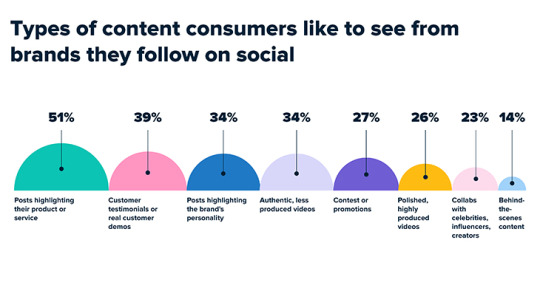
D) Email marketing-:Email marketing is an effective strategy for building client relationships and increasing conversion rates. It relies on the genuinely of the email list. Genuine email list can be structured by exchange of good content, offers & giveaways by small businesses. A user friendly website with useful pdfs which can be downloaded by providing an email is an example of gaining authentic mail id’s for retargeting. Retargeting is all about brand recall & emails with neatly placed call to action buttons facilitates sales in the digital marketing area. The usage of email marketing increases your site visit & help you gain good organic growth for digital presence. Remember to keep a mix of informational, promotional & entertaining content in your mails for better engagement
E) Monitor and analyze performance-: A plan without a strategy leads nowhere. Monitoring and analyzing the strategy put in digital marketing helps to refine our approach & leads our plan to achieve higher growth by widening our digital presence .
Tools like google analytics provide a lot of information for your decision making. Further one can make use of advanced AI tools and CRM dashboards coupled with tools like HUBSPOT & SEMrush for better visualization of digital marketing efforts.
This is all about 5 essential digital marketing strategies for businesses. Any business big or small should adapt these core principles to fortify their digital presence & target wider reach in the digital landscape.
6 notes
·
View notes
Text
Boost Your Business with Top PPC Services and Paid Media Marketing in Brazil
Keeping up with the competition in the fast-paced world of digital marketing necessitates a well-rounded approach spanning numerous methods and platforms. Pay-per-click (PPC) and Paid Media Marketing have emerged as powerful tools to drive immediate results and enhance brand visibility. In Brazil, businesses are increasingly turning to expert agencies like Allegru Media to harness the potential of PPC and paid media marketing. With a team of seasoned professionals and a commitment to delivering tangible results, It is a leading digital marketing agency providing comprehensive marketing solutions to businesses of all sizes.

Pioneering Digital Marketing in Brazil
It has carved a niche for itself in Brazil's competitive landscape of digital marketing. As a prominent agency, it boasts a dedicated team of skilled individuals who are well-versed in the subtleties of PPC and paid media marketing. The agency's innovative approach and customer-centric strategies set it apart, ensuring clients achieve their marketing goals and maximize their online presence.
Comprehensive PPC Services in Brazil
Pay-per-click (PPC) advertising has revolutionized how businesses reach their target audience and generate immediate results. Our company offers a comprehensive suite of PPC Services in Brazil tailored to each client's unique needs. The agency's PPC experts leverage industry-leading tools and platforms to craft data-driven campaigns that deliver impressive ROI.
1. Keyword Research and Selection: it begins each PPC campaign with meticulous keyword research and selection. By identifying relevant and high-converting keywords, the agency ensures that clients' ads reach the right audience, increasing the chances of conversions.
2. Creative Ad Copy: Ad copy that is compelling is essential for attracting the attention of potential buyers. Our copywriters craft persuasive, engaging ad copies that align with the client's brand voice and objectives.
3. Targeted Audience Segmentation: Understanding the target audience is required for every PPC campaign to be successful. Our employs advanced audience segmentation techniques to deliver personalized messages to specific customer segments, driving higher click-through rates.

4. Bid Management and Optimization: Constant monitoring and optimization are critical to a successful PPC campaign. Allegrumedia uses real-time data analysis to make informed bid adjustments, maximizing the effectiveness of each campaign.
Paid Media Marketing Services in Brazil
In addition to PPC, paid media marketing encompasses various paid channels, such as social media and display advertising. Allegrumedia.com's Paid Media Marketing Services Brazil are designed to boost brand visibility and engagement across multiple platforms.
1. Social Media Advertising: With the rise of social media platforms in Brazil, we recognize the potential of social media advertising. The agency creates compelling ad campaigns that resonate with the target audience, fostering brand awareness and customer engagement.
Exposure. The agency designs visually striking display ads that capture attention and drive traffic to clients' websites.
2. Remarketing and Retargeting: Many potential customers might leave a website without completing a desired action. Through remarketing and retargeting strategies, encouraging them to return and convert.

Conclusion
Allegru Media has cemented its situation as a spearheading computerized promoting organization in Brazil, giving first-rate PPC and paid media showcasing administrations. With an accomplished group, imaginative techniques, and an emphasis on conveying unmistakable outcomes, the organization engages in promoting objectives for organizations of all sizes and goals and improves its internet-based presence. By utilizing the force of PPC and paid media promoting, Allegru Media keeps on moving its clients toward maintainable development and progress in the always-advancing computerized scene of Brazil.
Blog Source URL :-
#tiktok marketing services in brazil#ppc services in brazil#brazil digital marketing services#spotify advertising in brazil
2 notes
·
View notes
Text
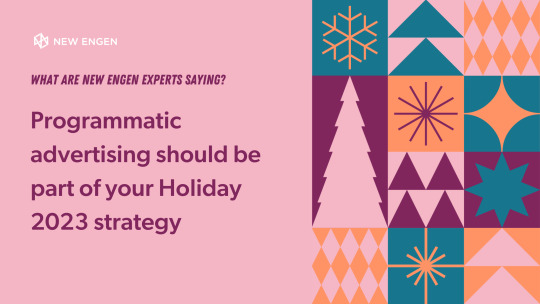
Holiday 2023 Outlook for Consumers and Marketers
Inflation has been on the decline for over a year, and in June it fell to 3% - the lowest rate recorded since March 2021. Coupled with this is a steady rise in consumer confidence, which in June hit a high not seen since early 2022. And even though these trends are a step in the right direction, economic uncertainty is still expected to play a large role in the purchasing decisions being made this holiday season. Price-conscious consumers will look to cut costs by shopping the sale section, using coupons, downsizing holiday celebrations, and simply buying fewer items. With so many brands competing for share of wallet, it won’t be enough to differentiate on price alone. Instead, brands should make a concerted effort to secure share of mind right now so that they are top of mind during the holidays and beyond.
At a high level, the best way to accomplish this is twofold. First, it’s critical to embrace an audience-first, channel-agnostic mindset so that you are reaching the right audience at the right time. Once you’ve found your audience, it’s important to meet them with strong messaging that is centered on brand value. In this article, we make the case for programmatic channels as effective marketing avenues for expanding brand reach and, ultimately, nurturing long-term brand favorability (i.e., when the holidays roll around).
Changing the Narrative on Programmatic Advertising
Let’s start with some housekeeping - when we talk about programmatic, we’re referring to a method for buying ads on specific channels, including Display, Video, Audio, and Digital Out of Home. Within each channel, there are myriad ways to target audiences based on interests, behaviors, device, location, and demographics.
“When you bring up programmatic to a performance marketer, you might see their eyes glaze over - they’re imagining annoying banner ads placed on low-quality inventory that don’t drive results,” says Erin Morningstar, Director of Strategy at New Engen. This attitude is pervasive and, according to Erin, informs the two primary reasons that brands are wary of investing in programmatic advertising: concerns about brand safety and equity, and limitations of measurement. These reservations are understandable, especially if you believe that programmatic is strictly used for generating brand awareness. But Erin explains that "programmatic is more than banner ads or dynamic product retargeting - it’s the turnkey option for accessing the wealth of ad inventory outside of walled gardens and paid search."
Teka Phan, Associate Director at New Engen, adds:
It’s important to understand that programmatic buying is performance buying. It powers actionable insights into how this media drives actions and conversions across the entire marketing funnel.
The reality of digital marketing in 2023 is that brands can’t successfully grow on the Meta-Google duopoly alone (the aforementioned walled gardens). Instead, it’s essential to meet your customers, both existing and prospective, where they are. This begs the question - where are they?
Media Consumption is Changing (Rapidly)
The channel landscape is more diverse than ever, and consumers are increasingly discovering brands through podcasts, in-app ads, and music streaming services. eMarketer predicts that, by 2024, 20% of all time spent consuming digital media will come from audio. What’s more, CTV already constitutes more than 25% of the time consumers spend with digital media, yet accounts for less than 10% of digital ad spending in the US. To put this in context, Meta receives roughly 20% of ad investment despite representing just 7.6% of all digital media consumption.
This is precisely why we, as an agency, believe that brands can win on channels like digital audio, CTV, and yes, even display. It’s true that direct-buying channels are often part of a mature media mix for many brands. But the benefit of embracing a programmatic-first approach is that it allows marketers to keep an eye on performance at scale while maintaining a direct buy approach for branding-first initiatives.
The Benefits of Investing in Programmatic
Thought leaders at New Engen have identified four primary benefits to investing in programmatic:
Control: Despite some preconceived notions, programmatic ad buying affords marketers tighter control over targeting, placements, and optimization. This level of control enables measurement testing in the form of geo holdouts, known audience split tests, and platform lift tools. Such exercises are critical to proving the value of channels outside of last-click.
Flexibility: Budgets can be seamlessly moved around across channels and publishers on a daily or even hourly basis. In contrast, brands buying directly from multiple publishers are beholden to more rigidity driven by campaign minimums and contract terms.
Value at Scale: Not only are CPMs generally cheaper when buying programmatically, but DSPs often provide access to a variety of inventory types, formats, and audiences - in turn, this variation powers the development of diverse, mature programs. The inventory is virtually endless and continuing to grow as more platforms and publishers open their inventory to exchanges.
Actionable Insights: By investing in programmatic activations, brands can quickly gather learnings about what kind of inventory and formats are driving performance. While this may not be a unique function of programmatic channels, it’s differentiated by actionability - “Many people see programmatic as an upper funnel, impression-buy only. The value is that we can measure action (conversions, traffic, etc.) and then act on it in real-time,” Teka explains.
How New Engen Clients Have Found Success With Programmatic
Programmatic buying has driven strong results for New Engen clients, with brands finding synergy between their programmatic programs and other marketing channels, including Paid Search and Social. Below are two New Engen case studies that exemplify the benefits of incorporating programmatic into your marketing mix.
Unlocking Incremental Site Traffic Through CTV
In Q4 of 2022, our client, an outdoor apparel brand, tasked us with driving incremental site traffic through new channels. We first identified CTV as their target audience's top digital destination, then we built three rich consumer segments: in-market for outdoor apparel gear, recent competitor site and store visitors, and recent outdoor equipment purchasers. Ads were served across a variety of CTV platforms like Roku, Hulu, Pluto TV, and the Discovery Channel, and optimized based on insights from real-time incrementality studies.
Under this approach, our exposed audience was 2.5X more likely to visit the brand’s site than our non-exposed audience. What’s more, we achieved a 1.9X lift in checkouts. In other words, the brand was able to reach and capitalize on a more qualified audience through its CTV initiative. To top it all off, we identified a previously under-served audience as a standout performer - a learning that is pivotal to refining the program downstream.
Proving the Revenue Impact of West Marine’s Digital Video Awareness Media
In order to validate the direct revenue impact of digital video awareness media, we designed an audience holdout test for our client, West Marine. We activated precision media buys across CTV and YouTube in Florida, a key growth market for the brand. The audience segments included prospecting, retargeting, and lapsed customers, and were compared against national performance.
By the end of the two-week period, the target audience delivered a 1.7X lift in online lapsed user transactions and a 4.6X lift in in-store transactions. Omnichannel ROAS also improved, and West Marine measured a 1.4X increase in year-over-year omnichannel revenue from new-to-file customers.
Programmatic Advertising Best Practices for Holiday 2023
Whether you're bought into programmatic after reading this or just curious to learn more, we want to leave you with our recommendation for what to do next. Here's what New Engen leaders say are the most important steps to successfully incorporate programmatic into your Holiday 2023 strategy:
First and foremost, set clear objectives
→ Identifying what you want to accomplish and learn from your programmatic initiative is the most important step, as this will inform how to design your program. Before you can drive awareness with a new segment or increase AOV within an existing one, you’ll need to understand your audience - then, you can tailor your channels, targeting, and creative parameters to their specific needs. Once you’re aligned on the plan, stick to it.
Set expectations with your team
→ Know that every channel should have its own goals and benchmarks. Don’t track your programmatic performance against your Paid Search campaigns, because these are inherently different channels and so are their outcomes. Performance will even vary across, Podcast, CTV, and Display given their different mediums.
For example, a consumer who searches for “shoes” is more likely to make an immediate purchase because they are actively searching for the product. Programmatic channels, on the other hand, expose audiences to products before they are ready to purchase. So if that same consumer sees a CTV ad for a pair of shoes before they start their search, there’s a likelihood that they will have been influenced before their final purchase decision.
Launch early
→ We anticipate that the holiday season will stretch across Q4, and consumers will start their holiday planning and shopping early - you want to be there when they’re in the consideration stage. As a rule of thumb, you should be in market at least 4 weeks prior to your peak shopping period.
Anticipate different scenarios
→ As an agency practice, we create decision playbooks with our clients going into critical peak periods that allow our teams to move quickly when optimizing campaigns.
If you’re interested in chatting more about your programmatic strategy for the holidays or beyond, reach out to us at [email protected]. For more holiday insights and digital marketing news, subscribe to our newsletter and follow us on LinkedIn.
#digital marketing#advertising#seo#programmaticadvertising#holiday 2023#marketingstrategy#marketingagency#performance marketing#marketing channels
5 notes
·
View notes
Text
Highly Effective Product Ads Examples: Best Way For Business Success
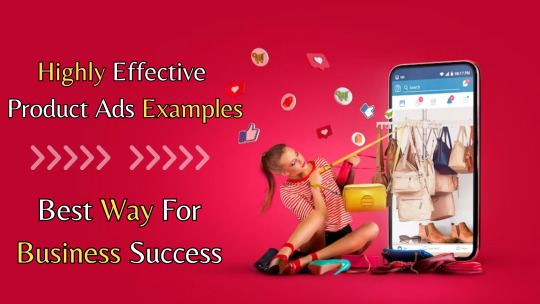
Advertisement of a product is so essential in the current scenario. You may readily contact your target audience by displaying adverts for your items. You can also use product ad examples to make your advertising more unique and attractive.
So, have you ever tried creating your product's ads before? If your answer is yes, then it's perfect. But if your answer is no, then don't worry! Because this article is beneficial for you in grabbing knowledge regarding the creation of product ads and e-commerce ads.
Let's learn them one by one.
What Is Product Ads?
Product advertisements are marketing materials created to highlight and market a certain product to potential customers. These advertisements use a variety of visual and textual elements to showcase the product's characteristics, benefits, and unique selling factors, with the goal of capturing the target audience's attention and persuading them to make a purchase.
Product commercials that are effective generally use appealing imagery, persuasive language, and emotional appeal to connect the consumer's wants or aspirations to the product's solutions.
Print ads, TV commercials, internet banners, social media posts, and other types of advertising can be used, each tailored to the platform and audience for the best impact. Finally, in today's competitive market, product advertising plays a key role in driving brand recognition, increasing sales, and influencing consumer decisions.
05 Best Effective Product Ads Examples
Get A Mac By Apple
Apple's series of TV advertisements contrasting a casual Mac user with a formal PC user effectively portrayed the Mac's user-friendly, inventive nature, resonating with viewers and adding to Apple's brand identity.
Real Beauty Sketches By Dove

Dove's stunning campaign, which featured women explaining themselves to a forensic sketch artist, focused on self-perception and beauty. The emotional impact of understanding their self-criticisms was too negative and struck a chord, promoting Dove's message of self-acceptance.
Just Do It By Nike
Nike's iconic phrase has been at the center of many successful advertising campaigns, including the one starring Colin Kaepernick. This daring action linked the company to social activism, sparking debate and increasing Nike's name.
Alexa Loses Her Voice By Amazon
Amazon's Super Bowl ad mocked what would happen if Alexa lost her voice, highlighting the product's features and including celebrity cameos for added entertainment.
Pepsi Challenge By Pepsi
Pepsi's taste test campaign placed its cola against rival Coca-Cola in blind taste testing, thereby challenging Coca-Cola's perceived superiority and increasing Pepsi's market share.
Is E-Commerce Ads Beneficial For Business Growth?
E-Commerce ads are advantageous to business growth. In the current era, these adverts can reach a precise audience, boosting brand awareness and customer engagement.
E-Commerce ads may efficiently bring probable customers to your online business via platforms such as search engines and social media, resulting in higher website traffic, conversion rates, etc. Organizations can adjust their advertising strategy for maximum outcomes by carefully targeting specific demographics and tracking real-time knowledge.
Furthermore, E-Commerce advertising supplies a competitive advantage by showing products with stunning imagery and fascinating information differentiating your business in a crowded market. Aside from it, you can also use Instagram Advertising for enhancing your followers.
Retargeting opportunities are particularly critical in re-engaging users who have expressed interest but have not yet made a purchase. Businesses may tap into the enormous potential of digital marketing by leveraging the scalability, measurability, and variety of eCommerce ads to extend their consumer base, enhance their market presence, and generate long-term success.
Top 05 E-Commerce Ads Examples
Shopping Ads By Google

These ads appear in Google search results with product photos, pricing, and store names. A user searching for "running shoes" may get a carousel of products with photographs, pricing, and connections to online stores.
Carousel Ads By Facebook
You may create carousel ads on Facebook that includes many photos or videos displaying various products. Its interesting structure allows you to highlight several features of your product line.
Story Ads By Instagram
These full-screen vertical ads appear amid the stories of users. Brands can utilize Stories to display items in action, behind-the-scenes content, or user-generated content in innovative ways. You can also watch: How To Create User Request For A New Advertisement
youtube
Final Words!
The world of product advertisements highlights the fluid and ever-changing character of modern marketing. Brands have used the power of advertising to engage with people on profound levels through inventive techniques, appealing imagery, and emotionally relevant storytelling. The product ad examples displayed emphasize the need of knowing consumer psychology, adapt messages to specific groups, and leveraging several platforms for optimum impact.
2 notes
·
View notes
Text
Frugal Marketing: Top 10 Obscure Tactics to Skyrocket Your Website Traffic

Navigating the digital landscape on a tight budget can be daunting. But with strategic and budget-friendly marketing tactics, you can increase your website traffic significantly. Here are ten obscure but highly effective strategies, complete with success rates and helpful tools, all implementable within a budget of $5000.
1. Embrace Social Media Advertising
Social media advertising has tremendous reach. With as little as $5 a day, you can reach over 1,000 people on Facebook alone. Also, you could expect to pay anywhere from $0.50 to $2.00 per action (click, retweet, like, follow, or “boost”) for a Twitter campaign. Nextdoor, the neighborhood-focused social networking app, presents a unique opportunity for brands seeking to target consumers on a hyper-local scale. As with all social media advertising, the cost to reach 1,000 people (often referred to as CPM) could vary significantly depending on these factors. CPM is your cost per mile. It measures your rate per 1,000 impressions. It’s best to start small, monitor your campaign closely, and adjust as needed to optimize your budget. Tools like Hootsuite allow you to manage and analyze your campaigns across multiple platforms.
2. Invest in Search Engine Optimization (SEO)
Organic search leads have a 14.6% close rate, while outbound marketing leads have a 1.7% close rate. Tools like SEMrush or Moz can be crucial for finding keywords, analyzing your website’s SEO health, and studying your competition.
3. Leverage Email Marketing
Email marketing has an average ROI of $42 for every dollar spent. MailChimp, an affordable email marketing tool, allows you to create newsletters, automate emails, and analyze your campaign’s performance.
4. Dive into Content Marketing
Content marketing gets three times more leads than paid search advertising. Platforms like WordPress make it easy to start a blog, while tools like Grammarly can help ensure your content is well-written and error-free.
5. Host a Webinar
Studies show that between 20% and 40% of webinar attendees turn into qualified leads. Webinar platforms like Zoom offer affordable options to host your virtual event.
6. Run a Contest or Giveaway
Contests on Instagram can generate 64x more comments and 3.5x more likes compared to regular posts. Tools like Rafflecopter can help manage your contests and giveaways across multiple platforms.
7. Collaborate with Influencers
According to a Mediakix study, 89% of marketers say ROI from influencer marketing is comparable to or better than other marketing channels. Apps like Upfluence or AspireIQ can help you connect with micro-influencers in your niche.
8. Use Retargeting Ads
Website visitors who are retargeted with display ads are more likely to convert by 70%. Tools like Google AdWords and Facebook Ads Manager can help you set up retargeting campaigns to re-engage your website, visitors.
9. Partner with Non-Competitive Businesses
According to a CoSchedule study, businesses that blog collaboratively have 2x more traffic. Look for guest blogging opportunities or partnerships within your niche to share and co-promote content.
10. Try Affiliate Marketing
Affiliate marketing accounts for 15% of all online revenue from digital media. Using platforms like ShareASale or CJ Affiliate, you can set up an affiliate program to incentivize others to promote your products or services.
Remember, the key to frugal marketing is monitoring your results, optimizing your strategies, and adjusting as needed. With these tactics and tools, you can maximize your budget and drive substantial traffic to your website.
5 notes
·
View notes
Text
How to Use Social Media Advertising: What You Should Know
Introduction
Marketers must use social media as it has become a necessary tool in recent years. Traditional marketing has been most throughly disrupted by social media among all new media marketing platforms. Potential customers only receive messages through older outbound marketing methods and cannot communicate back.
Interactions between customers and businesses can happen directly on social media. Questions may be asked by either party while reposting content and developing a relationship is also possible. Best Digital Marketing Company in Pune gives ten tips for successfully promoting your business on social networks are presented here to help those who find the prospect of starting social media marketing intimidating.
Set Clear Objectives:
Determine your goals for using social media advertising. You might increase brand awareness, drive website traffic, generate leads, or boost sales. You can evaluate the effectiveness of your advertising efforts by setting clear objectives.
Identify Your Target Audience:
Based on their demographics, interests, and behaviors, define your target audience. This will help you create targeted and relevant ads that resonate with your potential customers.
Choose the Right Platforms:
Make sure you choose the social media platforms where your target audience is most likely to be active. Pinterest, LinkedIn, Twitter, and Facebook are some of the most popular social media platforms. Each platform has its own strengths and audience demographics, so choose the ones that align with your business objectives.
Craft Compelling Advertisements:
Ads that are visually appealing and compelling will draw in your target market. Use high-quality images or videos, compelling headlines, and clear calls-to-action (CTAs) to encourage users to take action.
Utilize Ad Targeting Options:
Use social media platforms to target your audience. Narrow down your audience based on location, age, gender, interests, and other relevant criteria. Increasing the chances of conversion, you'll ensure that your ads are shown to users who are most likely to convert from your ads.
Monitor and Optimize Performance:
Keep a close eye on how your ads are performing and make any necessary adjustments. Analyze key metrics such as click-through rates (CTRs), conversions, engagement, and return on ad spend (ROAS). Use this data to optimize your ads, audience targeting, and budget allocation for better results.
Implement Retargeting:
Reach out to website visitors and users who have previously shown interest in your products using retargeting campaigns. By displaying tailored ads to these users, you can increase the likelihood of conversions and customer retention.
Test Different Ad Variations:
Conduct A/B testing by creating multiple versions of your ads to identify the most effective elements. Test different headlines, images, CTAs, or ad formats to find out what resonates best with your target audience.
Budget Management:
Set a budget for your social media advertising campaigns and allocate it wisely across different platforms and ad types. Start with a smaller budget and gradually increase it as you find success with your ads.
Monitor Industry Trends:
Stay updated with the latest trends and changes in social media advertising. Platforms often introduce new features, ad formats, or targeting options that can benefit your business. Stay competitive by adjusting your strategies accordingly.
Conclusion
Leveraging the advantages of social media advertising can significantly boost your business by targeting a wider audience, increasing brand visibility, increasing traffic and increasing conversions. Embrace the power of social media and watch your business grow.
#Social Media Advertising#Uses Social Media Advertising#Best Social media marketing company in Pune#Best Social Media Marketing Agency#Digital Marketing Company In India#Best Digital Marketing Company#Digital Marketing Agency
2 notes
·
View notes
Text
Looking for a Top PPC Company in Hyderabad? Here’s Why PPC Studio is Your Best Choice
Introduction
In the digital-first world, visibility is everything. If your potential customers can’t find you online, they’ll find your competitors. That’s where Pay-Per-Click (PPC) advertising plays a game-changing role. Businesses looking to scale rapidly, generate high-quality leads, and maximize their return on investment (ROI) are increasingly turning to PPC campaigns. But here’s the real question: How do you choose the best PPC company in Hyderabad that actually delivers results?
Whether you’re a startup, an eCommerce brand, a B2B service provider, or a local business, PPC Studio is a trusted and performance-driven PPC agency in Hyderabad that specializes in turning ad spend into actual revenue.

🔍 What is PPC and Why Does Your Business Need It?
PPC (Pay-Per-Click) is a form of online advertising where you pay only when a user clicks on your ad. Platforms like Google Ads, Meta (Facebook and Instagram), LinkedIn, and YouTube allow businesses to run highly targeted campaigns based on demographics, location, search intent, and more.
Here’s why PPC is so powerful:
Instant Visibility – Appear at the top of Google within hours, not months
Highly Targeted – Reach exactly the people looking for your product or service
Flexible Budgeting – Set your budget and control ad spend
Measurable Results – Track every click, impression, and conversion
Fast ROI – Drive leads and sales quickly
But effective PPC requires expertise. Poor campaign setup or irrelevant targeting can burn through your budget fast. That’s why hiring an experienced PPC company in Hyderabad like PPC Studio can make all the difference.
🚀 Meet PPC Studio: Your Trusted PPC Company in Hyderabad
At PPC Studio, we’re not just another agency that runs ads. We’re performance marketing partners who bring in data, creativity, and strategy to help you grow fast and profitably.
✅ Who We Are:
Google Ads Certified Professionals
Meta Ads Experts
Data-Driven Campaign Planners
CRO (Conversion Rate Optimization) Specialists
Partnered with Fortune 500 Brands
Proven Track Record Across 10+ Industries
From Google Search Ads to Performance Max, YouTube Ads to Meta Reels campaigns—we do it all with precision.
💼 Our PPC Services in Hyderabad
We offer a full suite of PPC solutions for businesses of all sizes. Here’s a glimpse of what we offer:
1. Google Ads Campaign Management
Search, Display, YouTube, Shopping, and PMax
Keyword Research and Intent Mapping
Negative Keyword Optimization
Ad Extensions and A/B Testing
Conversion Tracking and Reporting
2. Meta Ads (Facebook + Instagram)
Brand Awareness, Lead Generation & E-commerce Campaigns
Lookalike & Custom Audience Targeting
Funnel-Based Ad Strategies
Reels and Carousel Ad Optimization
Pixel Setup and Retargeting
3. YouTube Ads
Skippable, Non-skippable, and Bumper Ads
Creative Scripting + Voiceovers
Video Ad Optimization for Maximum Engagement
4. LinkedIn Ads (For B2B)
Decision-Maker Targeting
Sponsored Messages and Lead Ads
Ideal for SaaS and Consulting Companies
5. Landing Page Optimization
Conversion-Focused Design
A/B Testing with Real Data
Speed & Mobile Optimization
🛍️ Industry Experience
We’ve successfully run PPC campaigns for:
E-commerce: Fashion, Electronics, Cosmetics
Healthcare: Clinics, Diagnostic Labs
Real Estate: Builders, Agents, Luxury Villas
Education: Coaching Institutes, EdTech
Finance: Mortgage Brokers, Investment Firms
SaaS & B2B: CRM Software, HRMS Solutions
Local Businesses: Salons, Gyms, Interior Designers
No matter your industry, our team knows how to target the right audience and drive conversions.
🔥 Real Results, Not Just Promises
Some numbers from recent campaigns:
30x ROAS for a cosmetics brand
3x lead volume at 50% lower CPL for a real estate firm
60% drop in bounce rate after landing page optimization
100+ leads/month for an international education consultancy
We don't just deliver clicks—we deliver customers.
💡 How We Work
Our process is clear and performance-driven:
Audit & Strategy Call We understand your business goals, analyze your current PPC efforts, and suggest improvements.
Campaign Setup We perform keyword research, audience segmentation, and creative design for maximum relevance.
Execution & Monitoring We launch ads, monitor performance, and optimize based on real-time data.
Reporting & Scaling You’ll get weekly and monthly reports. Once we hit the KPIs, we help you scale profitably.
🌍 Serving Hyderabad and Beyond
While based in Hyderabad, our PPC campaigns have helped businesses across India, the US, UK, UAE, and Canada. Whether you’re a startup in Jubilee Hills or an enterprise in Hitech City, we’re ready to take your digital marketing to the next level.
📲 Ready to Grow with Hyderabad’s Leading PPC Company?
Whether you're aiming for leads, sales, or app installs—PPC Studio is the performance partner you’ve been looking for.
👉 Visit Us at: www.ppcstud.io 📞 Book Your Free PPC Strategy Call Today! ✉️ Let’s Discuss Your Growth Plan – No Strings Attached
✍️ Final Thoughts
Choosing the right PPC company in Hyderabad is crucial if you're serious about digital growth. With years of experience, certified experts, and a proven track record, PPC Studio doesn’t just run ads—we craft strategies that convert clicks into customers.
Make the smart move. Partner with PPC Studio and watch your business scale like never before.
0 notes